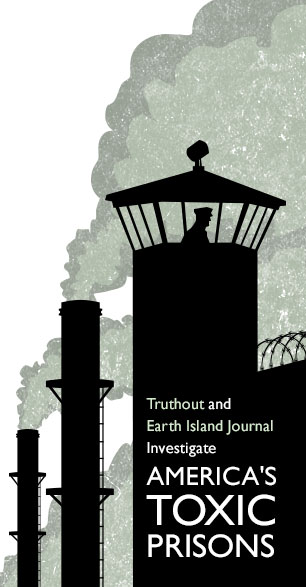
Imagine a rural oasis of sustainable agriculture and community. There are aquaponic ponds filled with fish, fields lined with vegetable rows, pastures for farm animals, and hives buzzing with bees. There are dormitories for staff, a community kitchen for culinary classes, and even a climbing wall for energetic kids. Now picture all of this at the site of a former jail in Wagram, North Carolina — the fish swimming in tanks in old jail cells, the cows contained by old prison fence lines, and the climbing wall converted from a guard tower. That’s the vision put forth by GrowingChange, a nonprofit that’s flipping old detention facilities into bastions of local food and social justice.
The concept could hardly be more ambitious, or more necessary. The United States incarcerates more people than any other nation on the planet. Roughly 2.2 million people were behind bars in the country in 2017, most of them from poor communities of color. But in 2016, for the first time since the 1970s, the US saw a small decline in its prison population. And between 2011 and 2016, some 20 states around the country announced plans to close more than 90 prisons and jails.
Though the prison population decline has so far been modest, jail closures beg the question of what should be done with detention facilities that are no longer in use; a question that may become more pressing if prisoner populations continue to drop. There are no straightforward answers, it seems. Former detention centers can be difficult to repurpose. They can also be a hard sell to new investors.
 “Prisons are very punitive and austere environments,” says Nicole Porter, director of advocacy with the nonprofit Sentencing Project and author of a report on the repurposing of old prisons. “Particularly in the US, their architecture is campus-like structures with multiple buildings. The idea of repurposing them for a future project is oftentimes challenged by the lack of imagination or the lack of real possibility for what the closed prison can actually be.”
“Prisons are very punitive and austere environments,” says Nicole Porter, director of advocacy with the nonprofit Sentencing Project and author of a report on the repurposing of old prisons. “Particularly in the US, their architecture is campus-like structures with multiple buildings. The idea of repurposing them for a future project is oftentimes challenged by the lack of imagination or the lack of real possibility for what the closed prison can actually be.”
Still, some groups are getting creative. In urban areas like New York, advocates have begun transforming old jails into reentry centers to serve the same communities that were once locked behind bars. Others have proposed use of old facilities for everything from movie studios, to homeless shelters, to tourist attractions, not unlike the conversion of Alcatraz Federal Penitentiary into a well-known landmark in the San Francisco Bay.
In rural areas, however, the challenges posed to repurposing can be greater. A remote former jail may not make the best re-entry facility, for example, because it is difficult to reach. That’s not to say these facilities are impossible to reuse. In Tennessee, a former maximum security prison is being transformed into a whiskey distillery. In California, entrepreneurs are turning an old prison into a medical marijuana farm. And in North Carolina, Noran Sanford, founder of GrowingChange, is re-imagining prison “brownfields” into so-called “greenfields,” while addressing a whole host of other social justice issues at the same time.
Sanford hasn’t always been involved in the business of prison repurposing. A clinical social worker who specializes in working with youth, he returned to his hometown of Laurinburg in North Carolina’s Scotland County several years ago to help care for his aging mother. Scotland County, however, posed unique challenges to serving at-risk youth. It has some of the highest unemployment and food insecurity rates in the state, not to mention some of the worst health outcomes for residents. Sanford realized he needed a new approach to working with youth in this rural setting, one that empowered the young people he was trying to reach.
Driving around the region, he began to notice several decommissioned prisons that weren’t being put to any use. He found six within a fifty-mile radius of his home. The discovery of these unused facilities sparked the idea for GrowingChange, which was founded in 2011.
The organization’s mission is far-reaching. GrowingChange engages at-risk youth with the goal of keeping them out of the juvenile criminal-legal system. In the process, kids receive valuable job training and life skills. Veterans retiring from military service are eligible for leadership roles within the organization. They are also provided onsite housing, and while working for the nonprofit they also work towards college degrees with partner universities.
 GrowingChange harvested its first crop fo pumpkins in October. The nonprofit is in the early stages of transforming an old prison into a sustainable agriculture enterprise. (Photo courtesy of GrowingChange)
GrowingChange harvested its first crop fo pumpkins in October. The nonprofit is in the early stages of transforming an old prison into a sustainable agriculture enterprise. (Photo courtesy of GrowingChange)
Eventually, GrowingChange will roll out a sustainable agriculture and culinary educational program for the surrounding community. A former prison bus will become a roving museum, and volunteers will participate in environmental restoration efforts along with farming.
As Sanford puts it, “The intersection of economic, social, environmental, and food justice is where we stand, and this is where we have to work, because in rural areas … you have to do a whole lot with a whole little.”
GrowingChange’s first repurposing project is being rolled out at Scotland Correction Center in Wagram, NC. Contrary to what one might expect, Sanford says that the design of the facility has actually enhanced its use. “Exactly what makes a prison a prison is what helps our model,” he says. “Where one might see a perimeter, I see a pasture.”
“For us, the sturdiness of the buildings is an asset,” he adds. “We look to the building itself to determine what it should be.”
The organization involves young people in the planning process as well. “Our youth determined that we should take the lead guard tower and transform it into a repelling wall and adventure slide,” Sanford says. “The adults in the room would have missed this opportunity.”
When it comes to building community for young people, the organization seems to be excelling. “From day one I felt like I was at home,” says Gerald Jacobs, a 15-year-old high school student and GrowingChange member. “I was comfortable around everyone…. They treated me as the person I always wanted to be.”
Of course, the process of transforming an old prison site is a long one. “We are still in a very humble phase of renovation,” Sanford says, explaining that the nonprofit held its grand opening at the site in October. So far, they’ve turned on power, water, and the septic system, and are gearing up for a capital campaign to begin renovations.
Porter finds the repurposing of old prisons for agricultural use promising, “especially given the history of rural areas looking to prisons as economic options as the local agricultural sector got weaker,” she says, referring to frequent though often-inaccurate perception that prisons bring local jobs. She adds, “The idea that there is a future opportunity now that prisons have closed down in rural areas for those same communities to look at supporting the agricultural industry … is really exciting.”
Unfortunately, converting correctional facilities to farms can also pose challenges. In Peoria, Illinois, the county government considered a proposal to repurpose a decommissioned jail into an agricultural incubator. According to Kathleen Brown, extension specialist with the Community & Economic Development department at University of Illinois at Urbana-Champaign, after careful study, the project was deemed infeasible due to high renovation costs, the remote location of the property, and federal restrictions on use of the land.
Still, Sanford hopes that the GrowingChange project can serve as a model for other rural communities around the country. He plans to develop a toolkit on prison-to-sustainable agricultural conversion that can be used elsewhere, and GrowingChange has set the lofty goal of assisting 25 other communities to repurpose their old prisons and jails by 2025.
5 Days Left: All gifts to Truthout now matched!
From now until the end of the year, all donations to Truthout will be matched dollar for dollar up to $50,000! Thanks to a generous supporter, your one-time gift today will be matched immediately. As well, your monthly donation will be matched for the whole first year, doubling your impact.
We have just 5 days left to raise $50,000 and receive the full match.
This matching gift comes at a critical time. As Trump attempts to silence dissenting voices and oppositional nonprofits, reader support is our best defense against the right-wing agenda.
Help Truthout confront Trump’s fascism in 2026, and have your donation matched now!